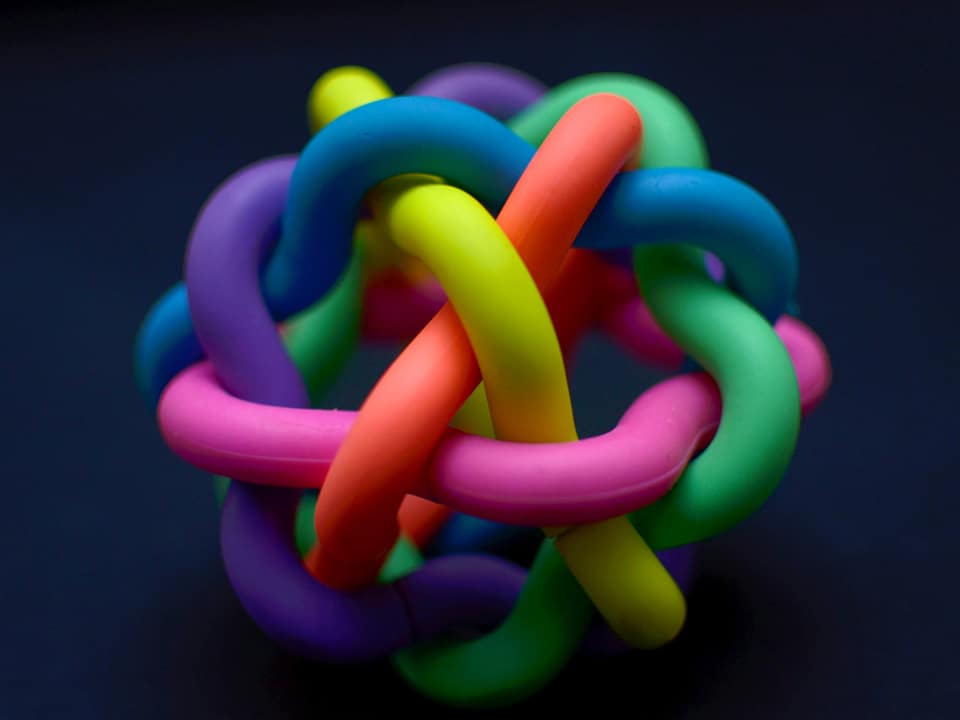
Reflections October 2020 – Week 3
October 19, 2020
Why are time management techniques important?
October 29, 2020Agency musings
Low stakes testing in agencies?
The book Make It Stick mentions low stakes testing as a highly effective way to retain information. You are put through regular tests on how much you remember about a given topic. These are run without much at stake if you don’t get many answers right - as loss in confidence may have a negative effect.
Is a soldier ‘good enough’ to take part in a specific mission? The military measures efficiency and performance to answer this question. In the case of efficiency for example, they look at how little resources you used when achieving your last mission. For performance, an example would be that you are put through regular tests to evaluate your level of fitness.
I always wonder how often agencies use low stakes testing to evaluate the performance of each individual on their team. Do you put your account manager through monthly mini ‘low stakes’ tests to see how much they know about their job?
Inside Polymensa

Team Mintaka
We continued our “Time Management” theme...
Exploring how a special ops sergeant, agency MD and ultra runner and olympic gold medalist rower all manage their time. Last week Simon Norris, founder of 130 person UX / Service agency Nomensa shared his philosophies of time.
Simon generally has an open door policy for every member on his team.
But he always asks a simple question first:
“Do you want to just tell me something or do you want me to also take action on it?”
All recordings, detailed notes, frameworks and book recommendations about Time Management are available as part of the Polymensa premium membership - respond to this email if you’re interested in discussing how your agency can become a part of one of our three teams.
Pipedrive CRM Peer Perspective Call
Lots of good insights last week from agencies who are currently using Pipedrive as their CRM. If you are looking to use Pipedrive or want to see what’s new, you can re-watch the session now - watch video on Vimeo
Using the power of my network to do ‘good’
My deeper reason for running Polymensa, beyond financial freedom (yep we all need that, to do 'good'), is wanting to build a network of people that will help me fix real world problems.
When I was 15 I was in court twice, with a final reminder that would have led to several months in prison. Drugs and violence were at the heart of my everyday life. Fortunately, I turned my life around finding ways to channel my ambitions in a different way - thanks to my mother and aunt. Too many kids don’t get this chance. I am on a mission to help.
Last week I had the honour to speak to John McAvoy and his friend Terry Williamson about their new cycling project. John’s story is incredible! From armed robber to Ironman and breaking 8 world rowing records while in prison. See him tell his story at the legendary Podge - thank you to the one and only Phil Jones for introducing me.
The bike ride
I’m planning a bike ride with John and Terry for 10 entrepreneurs (more if permits) from the agency world and other sectors to help raise money for the cause mentioned above. If you're a road cyclist and interested in taking part, please respond to this email. Your help will go a long way and I'll promise an unforgettable experience on our cycling day out. I’ll personally put £3,000 of my own money into the fundraising.
The beautiful mind
You don’t have to like someone to be in harmony
According to this photo there are 78 members of The London Symphony Orchestra (LSO). It’s highly doubtful that everyone likes each other like best buddies would. Yet they are able to play in near perfect harmony. Guided by the framework of the music, timing and taking full ownership of your role. Arguably the normal human probably wouldn't spot a fault in a performance - but the very fact the team works so well together you can't even notice a mistake speaks for an incredible process that holds the LSO together.
What frameworks do you use in your agency?
Quote of the week
“Music is the space in between the notes.”
Claude Debussy
Company spotlight
Boxclad
This seems to be the middle class thing to do at the moment - build an office shed. With the COVID pandemic continuing to keep people at home, these type of businesses will definitely be doing well.
Connected Homeless
Spoke to the founder of this great organisation this week. They provide homeless people with wrist bands and a smartphone that connects them to a virtual wallet. You can donate directly via a code on the band. They can use the phone to make payments in stores.
Offended Marketing
This is the content agency of Dan Kelsall… came across his interview with Mike Winnet (creator of Contropreneur) where they discuss ‘authenticity’ in their own way. Warning! There is lots of swearing and marmite arguments - watch the interview on YouTube
Book reflections
Make It Stick
by Peter C. Brown, Henry L. Roediger, Mark A. Mcdaniel
I'm currently reading this: It’s a deep exploration of how our memory works. It contradicts a lot of beliefs we have about study habits and practice routines. Provides alternatives that apparently work better to remember things you’ve learnt. A controversial read so far.
Highlights from the book so far:
Low stakes testing
A method used to help retain information. This includes regularly testing how much a person remembers on a subject matter they are studying. The importance is that the tests are perceived as part of personal development, as opposed to a test whether or not you are smart.
Massed practice vs varied practice
This is very controversial. In sports massed practice is most commonly used and refers to doing a particular and new exercise over and over again until it is completely internalised. Then move on to the next. Varied practice on the other hand encourages doing multiple new exercises in no particular order. Because you have to work harder to remember things, apparently it is more effective to retain information. However, there is a strong argument that distributed practice is probably just as effective (the main difference to massed is the duration at which you do each exercise).
Delayed feedback
When running experiments with students, those that got immediate feedback on incorrect answers did worse on the next test compared to students that received delayed feedback (e.g. a day later). It is unclear why exactly this is, but perhaps confidence plays a key part and shifting the mindset away from immediate gratification. Another reason could be that the students had more time to reflect on their own performance.
Random information
(some useful, some useless)
- Julia Child created a shark repellent to deter sharks from attacking underwater mines that were intended to blow up submarines instead of fish! Here's the full article on the CIA website
- A family of owls is called a parliament, ferrets is business and crows is murder. Here's an extended list of animal group names
Thank you for reading.
If you enjoyed this - reply to this email and let me know why. Also feel free to sign up to our mailing list.
Also find us on LinkedIn and Twitter.
"Be an infinite learner." - Polymensa
Have a great week!
Cheers, Daniel :)







